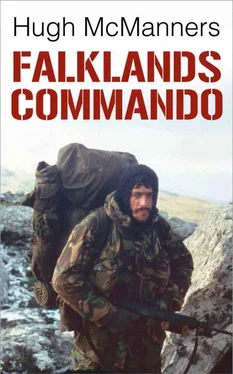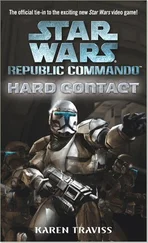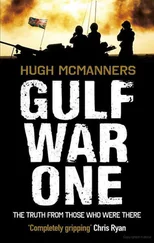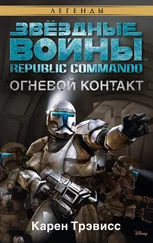Hugh McManners - Falklands Commando
Здесь есть возможность читать онлайн «Hugh McManners - Falklands Commando» весь текст электронной книги совершенно бесплатно (целиком полную версию без сокращений). В некоторых случаях можно слушать аудио, скачать через торрент в формате fb2 и присутствует краткое содержание. Город: London, Год выпуска: 2014, ISBN: 2014, Издательство: Nightstrike Publishing, Жанр: nonf_military, Биографии и Мемуары, на английском языке. Описание произведения, (предисловие) а так же отзывы посетителей доступны на портале библиотеки ЛибКат.
- Название:Falklands Commando
- Автор:
- Издательство:Nightstrike Publishing
- Жанр:
- Год:2014
- Город:London
- ISBN:978-0-992-81540-0
- Рейтинг книги:4 / 5. Голосов: 1
-
Избранное:Добавить в избранное
- Отзывы:
-
Ваша оценка:
- 80
- 1
- 2
- 3
- 4
- 5
Falklands Commando: краткое содержание, описание и аннотация
Предлагаем к чтению аннотацию, описание, краткое содержание или предисловие (зависит от того, что написал сам автор книги «Falklands Commando»). Если вы не нашли необходимую информацию о книге — напишите в комментариях, мы постараемся отыскать её.
Falklands Commando — читать онлайн бесплатно полную книгу (весь текст) целиком
Ниже представлен текст книги, разбитый по страницам. Система сохранения места последней прочитанной страницы, позволяет с удобством читать онлайн бесплатно книгу «Falklands Commando», без необходимости каждый раз заново искать на чём Вы остановились. Поставьте закладку, и сможете в любой момент перейти на страницу, на которой закончили чтение.
Интервал:
Закладка:
Hugh McManners
FALKLANDS COMMANDO
Preface to the e-book edition
Having written a new Introduction for this new e-book edition of Falklands Commando , I decided to keep the Introductions to my original 1984 edition of this book, and also that for the 2001 edition. This is unusual. But Falklands Commando was written 30 years ago, and re-printed three times over a period of history in which the world has moved from the deadlock of nuclear war, into the dangerous world of nuclear proliferation and asymmetric warfare.
My own perspective has changed just as fundamentally, from professional soldier, to erstwhile journalist, and now author running an Oxford University medical research foundation into the neuroscience of soldiers’ post-combat problems.
You can of course just skip the introductions and go directly to the beginning of Chapter 1of the book.
If moved to investigate the evolution of the various military issues I discuss here over these crucial decades – or indeed my personal feelings and perspectives, read on.
Some maps and illustrations are included in this e-book at appropriate points of the text. You can also access them via the index in the Maps and Illustrationssection.
Introduction to the original edition (1984)
I write from a second-floor room (overlooking the cricket square) of The Staff College at Camberley. Tucked away from the bustle of the Royal Military Academy, Sandhurst, behind green lawns and trees, its marbled halls are lined with paintings of moustached generals and glass cases displaying the now threadbare service uniforms worn by famous men in history-book battles. The columns around the central gallery are engraved with the names of the dead of half-forgotten wars in unpronounceable places – carefully annotated ‘died of wounds’, ‘died of sickness’ or ‘killed in action’. These battles would have been long over by the time the news of their outcome (and indeed the news that they had ever happened at all) had reached the outside world.
Two years after the day when the Argentine ‘Buzo Táctico’ (a company of their marine commandos) landed at Mullet Creek in East Falkland (2 April 1982) my memories of the extraordinary four months that followed are fresh, some of them deeply etched. Yet the whole episode stands apart from anything else.
The usual merging of events and experiences, putting them into context, does not seem to be possible with my memories of the Falklands saga. I suspect that this phenomenon is widespread: an inability to associate the geographical isolation of those islands and the political problem they now represent with the national fervour generated over their occupation and recapture in 1982. Other nations shared in this excitement and yet today talk disparagingly about the wisdom of sending our Task Force for so little material gain. Even some of our own people do this. The question of principle seems to have been forgotten.
It was such a singular event, emerging seemingly from nowhere. For us as participants, the stability of day-to-day life with its routines and mild excitements, the world seemed suddenly to go mad.
Then just as suddenly it was all over.
The time from when the Argentine commandos threw phosphorus grenades into the Royal Marine Barracks at Moody Brook until three days later when the Task Force set sail, was a period of intense preparation and chaos. It was not clear what the Task Force was going to do – indeed some thought we would simply float around for a while and then come home. Once at sea the pace eased off into an expectant lethargy, time being occupied in training and listening to the World News. As with most other people’s experience of war, it was boring and uncomfortable – but above all worrying.
Once hostilities began with the capture of South Georgia on 25 April and then the naval battle (the sinking of the Belgrano on 2 May and the successful Exocet attack on HMS Sheffield on 4 May), a dreadful sort of momentum developed as we all concentrated on the tasks that we were going to have to perform. The lethargy completely evaporated. Everyone was screwed up with tension, and events seemed to follow on rapidly.
As this is a real story, the exciting bits happen too suddenly (and sometimes too often) for a well-constructed plot. They are separated by periods of boredom made worse by the uncomfortable conditions and the continual gnawing worry. As far as we were concerned, once 3 Commando Brigade was safely ashore the outcome was decided. It was simply a question of when the ‘Argies’ would see sense and give up. So for us the end came with little real drama, as a tired and foregone conclusion which had been dragged out for several weeks.
The Argentine surrender was not a sudden relief either. It introduced a completely new set of problems, and left us stuck eight thousand miles from home. In short, as a story it has disadvantages of timing and plot.
When compared with the battles carved in marble around the balconied foyer of the Staff College, there are many differences and some similarities. It all happened far from home – a part of the world that many people thought was nearer Scotland than South America. The distance was the maximum that any scenario could dream up (given Earth geography) for an amphibious group to cover without a friendly port. The speed at which the operation was mounted is unparalleled and it was all over extraordinarily quickly.
Modern communications meant that the commanders on the spot (land commander Brigadier Thompson and the naval Task Force commander Rear-Admiral Woodward, then later, when 5 Brigade joined us, divisional Major-General Moor) spoke daily to overall commander Admiral Fieldhouse at the Northwood joint HQ. Admiral Fieldhouse spoke daily by the Prime Minister and her small War Cabinet, with all the risks of micro-management that entailed.
This was in contrast to the Boer War, when military news took weeks to arrive, so the commanders simply got on with fighting their battles.
Although distance and the lack of independent means of transmitting the stories meant that the media had less of an influence than in other recent wars, this was not so for the men of the Task Force. We were avid consumers of media conjecture – from of out-of-date newspapers and the World Service of the BBC. Interest in the political manoeuvrings early on was keen and morale fluctuated according to how the media viewed the progress of diplomatic talks. When diplomacy failed and the war started, lurid headlines in some papers made us uncomfortable – and some made us angry.
The retired armchair admiral pundits who pontificated on television news programmes, and in newspaper columns, were products of peacetime, with no war experience. Their sometimes wildly inaccurate pronouncements were amusing, but when they started to get it right (for instance discussion about the impending attack on Darwin and Goose Green, on the very evening that the Paras were sweating through the bogs and tussock grass of Laguna Legna for a surprise night attack) it seemed insensitive and indiscreet. Of course they were guessing – just as the Argentinians could guess. Indeed their conjecture might have helped to give an impression of another diversionary raid (D Squadron SAS had raided Darwin on the night of the San Carlos Landings). However, that interpretation is really too charitable, as that night the Argentine garrison at Goose Green was reinforced by helicopter.
This sort of thing made us feel very isolated. It also made us feel a little bitter – that we could not rely on our own countrymen, in warm television studios, to be reticent on our behalf.
The generals whose names are carved in marble in the galleried entrance hall at Staff College Camberley led armies that died as much from sickness as from enemy action. In those days, military medical science was rudimentary. Men would more often die from wounds than recover.
Читать дальшеИнтервал:
Закладка:
Похожие книги на «Falklands Commando»
Представляем Вашему вниманию похожие книги на «Falklands Commando» списком для выбора. Мы отобрали схожую по названию и смыслу литературу в надежде предоставить читателям больше вариантов отыскать новые, интересные, ещё непрочитанные произведения.
Обсуждение, отзывы о книге «Falklands Commando» и просто собственные мнения читателей. Оставьте ваши комментарии, напишите, что Вы думаете о произведении, его смысле или главных героях. Укажите что конкретно понравилось, а что нет, и почему Вы так считаете.












